Two-Week Intensives (PHP/IOP)
Virtual and In-Person Eating Disorder Relapse Prevention
Relapse Prevention Support
Recovering from an eating disorder is not a linear journey; almost everyone struggles in their recovery from time to time. Having a relapse prevention plan is an integral part of maintaining recovery and ensuring that temporary setbacks and lapses don’t escalate.
Two-Week Intensives are designed to help clients nourish their hard-earned recoveries and get back on track. Alsana offers virtual and in-person Two-Week Intensives for PHP/IOP. Call us today. (855)915-0213


Coping with Summer Eating Disorder Triggers
Summer can be a particularly difficult time of year for people with a history of eating disorders, disordered eating, and body image dissatisfaction. The diet culture pressure to achieve a certain body weight and shape is always pervasive, but perhaps more so when coupled with the anticipation of ‘beach season’ and the relative lack of structure of being home from school.
Relapse prevention planning and support are crucial no matter how long it’s been since leaving treatment. Alsana’s Two-Week Intensive programs provide whole-person, compassion-focused eating recovery support to help struggling individuals nurture their hard-earned recovery and regain their balance so they can prevent lapses from becoming full relapses.

Summer Eating Disorder Triggers
- For many, warmer weather comes with the pressure to show more skin or to be “beach ready”.
- Diet culture body comparison may intensify in the summer.
- An increase in seasonal, physical activities may be triggering to individuals with a history of compulsive exercise/exercise dependence.
- Disrupted routines/lack of structure (home from school, working irregular hours, etc.)
- More time spent with family; even well-meaning comments from loved ones can be triggering.
- Food-centric social gatherings (July 4th, cookouts).
- Summer can lead to an increase in body image-related anxiety, depression, body dissatisfaction and negative self-talk; it can also be triggering for people with eating disorders to overhear others’ negative comments about their own bodies.
If you or a loved one is struggling to maintain recovery from an eating disorder, it’s important to know that it’s normal to struggle from time to time. It’s even more important to know that relapse is preventable, and help is available.
Two-Week Intensives are PHP/IOP programs designed to provide relapse prevention care so clients can nurture their recovery and regain their balance with clinical and peer support. Rolling enrollment is open NOW! Contact us to learn more.

Seasonal Eating Disorder Triggers
Maintaining recovery from eating disorders takes consistent, ongoing effort, and each season brings its own set of unique recovery challenges.
Relapse prevention planning and support are crucial no matter how long it’s been since leaving treatment. Alsana’s Two-Week Intensive programs provide whole-person, compassion-focused eating recovery support to help struggling individuals nurture their hard-earned recovery and regain their balance so they can prevent lapses from becoming full relapses.
College Eating Disorder Triggers
- Competitive academic environment
- Ongoing and emergent co-occurring mental health conditions
- Inconsistent meals
- Social anxiety
- Not as connected with support network
- Pervasive diet culture ideas (ex: “freshman 15”)
- Food insecurity
- Disrupted routines and appointments
- Pressure to leave treatment early for school
If you or a loved one is struggling to maintain recovery from an eating disorder, it’s important to know that it’s normal to struggle from time to time. It’s even more important to know that relapse is preventable, and help is available.
Two-Week Intensives are PHP/IOP programs designed to provide relapse prevention care so clients can nurture their recovery and regain their balance with clinical and peer support. Rolling enrollment is open NOW! Contact us to learn more.

Seasonal Eating Disorder Triggers
Maintaining recovery from eating disorders takes consistent, ongoing effort, and each season brings its own set of unique recovery challenges.
Relapse prevention planning and support are crucial no matter how long it’s been since leaving treatment. Alsana’s Two-Week Intensive programs provide whole-person, compassion-focused eating recovery support to help struggling individuals nurture their hard-earned recovery and regain their balance so they can prevent lapses from becoming full relapses.
College Eating Disorder Triggers
- Competitive academic environment
- Ongoing and emergent co-occurring mental health conditions
- Inconsistent meals
- Social anxiety
- Not as connected with support network
- Pervasive diet culture ideas (ex: “freshman 15”)
- Food insecurity
- Disrupted routines and appointments
- Pressure to leave treatment early for school
Holiday Eating Disorder Triggers
- Seasonal Affective Disorder
- Challenging family dynamics and relationship-focused events
- Social gatherings revolving around food and alcohol
- Disrupted routines and appointments
- Traditions and memories trigger thoughts of old behaviors
- Anticipatory stress
- Reconnecting with people who may comment on appearance
- Pressure to leave treatment early for the holidays
If you or a loved one is struggling to maintain recovery from an eating disorder, it’s important to know that it’s normal to struggle from time to time. It’s even more important to know that relapse is preventable, and help is available.
Two-Week Intensives are PHP/IOP programs designed to provide relapse prevention care so clients can nurture their recovery and regain their balance with clinical and peer support. Rolling enrollment is open NOW! Contact us to learn more.
Know the signs of eating disorder relapse
- A pattern of missing or rescheduling appointments with treatment team.
- Eliminating a new food or progressive elimination of foods from a specific food group.
- Avoiding social meal outings.
- Signs of withdrawal or depression in both independent and social situations.
- An increase in conversations comparing body or food behaviors with others.
- Increase in activities that may indicate a transfer of addictive or obsessive behavior.
- More frequent participation in group exercise classes or individual exercise in general.
- An increase in “mirror checking” or trying on clothing worn during the active eating disorder days.
- A pattern of missing small but cumulative “daily life skills,” like buying groceries, paying bills, walking a pet, self-care appointments, doing laundry, etc.
- A pattern of missing prescribed medications.
- A change in personal hygiene.
- A significant change in body weight.
- Difficulty focusing at work and or an increase in workdays missed.
What to Expect
Whatever challenges you may be facing, our team is here to help clients regain their balance and nourish their hard-earned eating disorder recovery.
- PHP and IOP levels of care: Virtual and In-person session options are available for great care access and client convenience.
- Affirming relapse prevention programs for adult clients of all genders and body types.
- Clients receive complete psychological assessments at admission and discharge.
- All Alsana programs are aligned with Alsana’s Adaptive Care Model and care is delivered following each client’s individualized treatment map.
- Weekly 1:1 meetings with a multidisciplinary team of compassionate treatment professionals, including Nutrition Counseling, Therapy, and Nursing touchpoints as needed.
- Therapy sessions for Family and Supportive Others educate and support clients’ core recovery support network. Membership in Family/Supportive Others weekly groups.
- Daily group sessions provide a sense of community and support for relational healing.

Two-Week Intensive Program Features
Some program details may vary slightly by location, care level, and delivery method. Contact our Admissions Team 24/7 with questions.
In-Person PHP
- 6-8 hours of programming/day, 5-7 days/week
- 1 individual therapy session/week
- 1-2 nutrition counseling sessions/week
- 1 family/supportive-other session/week
- 2 nursing touchpoints/week
- 1 psychiatry session/week
- 4-5 group sessions/day
- Weekly meetings with nursing staff and psychiatrist
- 2 meals and 1-2 snacks/day
In-Person IOP
- 3-4 hours of programming/day, 3-5 days/week
- 1 individual therapy session/week
- 1 nutrition counseling session/week
- 1 family/supportive-other session
- 3 group sessions/day
- 1 meal/day
Virtual PHP
- 6.5 hours of programming/day, 5 days/week
- 1 individual therapy session/week
- 1 nutrition counseling sessions/week
- 1 family/supportive-other session
- 2 nursing touchpoints/week
- 1 psychiatry session/week
- 6 group sessions/day
- 2 supported nourishment opportunities/day
Virtual IOP
- Morning, mid-day, and evening session options
- 3-4 hours of programming/day, 3-5 days/week
- 1 individual therapy session/week
- 1 nutrition counseling session/week
- 1 family/supportive-other session
- 3 group sessions/day
- 1 supported nourishment opportunity/day
Explore PHP/IOP Programs
Alsana’s Day Treatment (PHP) and Intensive Outpatient (IOP) programs help clients build solid foundations for lasting recovery, relapse prevention, and health resilience.
Explore PHP/IOP Programs
Alsana’s Day Treatment (PHP) and Intensive Outpatient (IOP) programs help clients build solid foundations for lasting recovery, relapse prevention, and health resilience.
Lapse Triggers
Lapses and relapses are not uncommon for people recovering from eating disorders. In fact, while the rate of relapse varies depending on eating disorder type and severity, duration of the illness, access to ongoing support, and other individual circumstances, it is generally high.
One study found that among individuals who had received treatment for bulimia nervosa, 44% experienced a relapse within six months, and 70% experienced a relapse within two years.1
Another found that among individuals who had received treatment for anorexia nervosa, 35% experienced a relapse within one year, and 73% experienced a relapse within five years.2
Individuals return to past disordered eating behaviors for a variety of reasons and tend to be particularly vulnerable to lapse during times of great stress. Some stressors that could trigger lapse include:
- Major life changes such as going off to college or starting a new job
- Rejection
- Financial hardship
- Loss of a loved one
- Diagnosis of a chronic illness
- Childbirth
- Change of a relationship
- Stress, grief, or loneliness

All-Inclusive nutrition philosophy
With our “All-Inclusive Nutrition” approach, we believe in flexibility and enjoyment of foods without shame or judgment. Alsana’s All-Inclusive Nutrition approach embraces the usefulness of all foods, including those that are compact, innovative, and nutrient-rich, to aid in restoring and healing the brain, body, and gut microbiome. This approach broadens nutrition healing for our clients from all cultural and diverse backgrounds. Our goal is to create food neutrality by taking out the moral judgment of food and focusing on nourishment, flexibility, and pleasure in the nutritional healing process.



A Compassion-Focused Approach
Many eating disorder clients enter treatment with a self-compassion deficit. At Alsana, Compassion-Focused Therapy (CFT) is used alongside other therapeutic approaches to help clients
- Neutralize shame and blame.
- Develop self-compassion and mindfulness skills.
- Foster connection and social support.
- Address underlying emotional issues.
- Build transferable skills to sustain recovery after treatment.

Conditions Treated
We support adults of all genders who are recovering from:

Alsana is a preferred in-network provider for all major insurance companies.
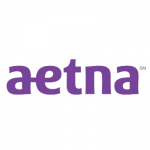
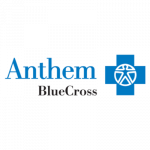

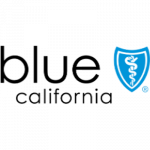
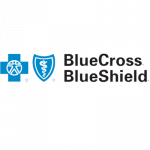
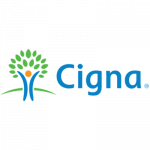

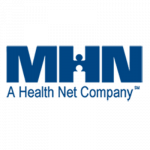
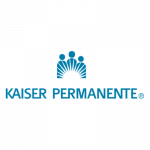


Live Chat
You don’t have to do this alone. We are here for you. Chat with a compassionate counselor today.

Know the signs of eating disorder relapse
- A pattern of missing or rescheduling appointments with treatment team.
- Eliminating a new food or progressive elimination of foods from a specific food group.
- Avoiding social meal outings.
- Signs of withdrawal or depression in both independent and social situations.
- An increase in conversations comparing body or food behaviors with others.
- Increase in activities that may indicate a transfer of addictive or obsessive behavior.
- More frequent participation in group exercise classes or individual exercise in general.
- An increase in “mirror checking” or trying on clothing worn during the active eating disorder days.
- A pattern of missing small but cumulative “daily life skills,” like buying groceries, paying bills, walking a pet, self-care appointments, doing laundry, etc.
- A pattern of missing prescribed medications.
- A change in personal hygiene.
- A significant change in body weight.
- Difficulty focusing at work and or an increase in workdays missed.
Submit the form below and a member of our team will be in touch with you shortly.
Alsana would like to be your eating recovery community.
Start the road to recovery with Alsana.
¹Bulik, C. M., Sullivan, P. F., Carter, F. A., Joyce, P. R. (1997). Lifetime psychiatric comorbidity in women with bulimia nervosa and their first-degree relatives: Results from the bulimia nervosa family study. Archives of General Psychiatry, 54(3), 225–231. doi: 10.1001/archpsyc.1997.01830150051009
²Fichter, M. M., Quadflieg, N., & Hedlund, S. (2006). Twelve-year course and outcome predictors of anorexia nervosa. International Journal of Eating Disorders, 39(2), 87-100. doi: 10.1002/eat.20213














